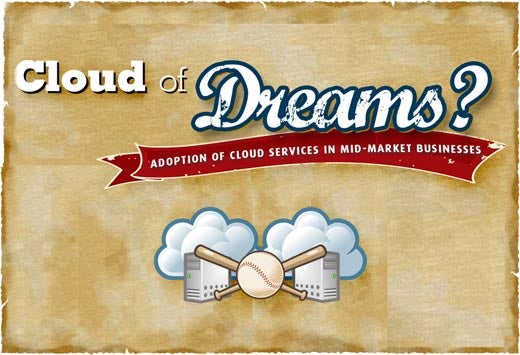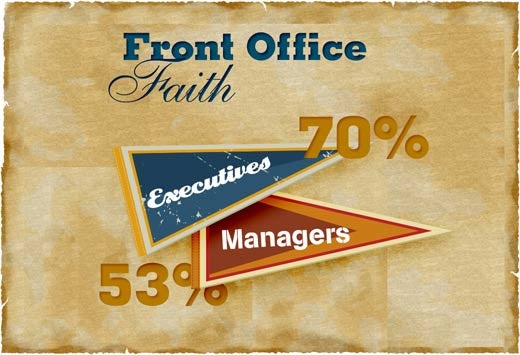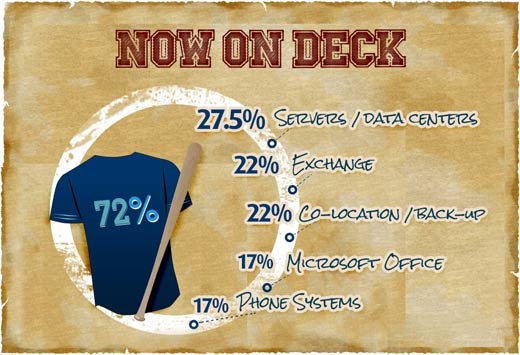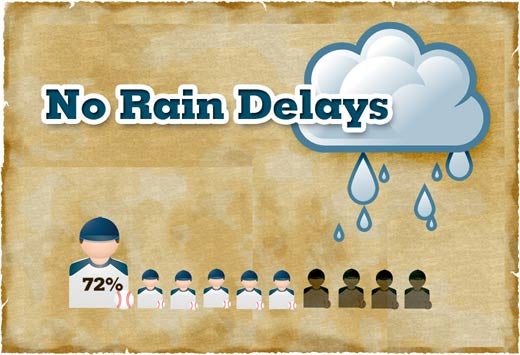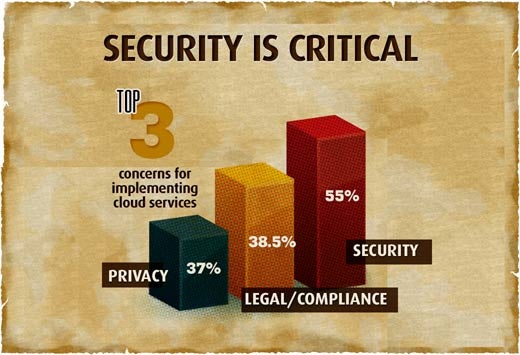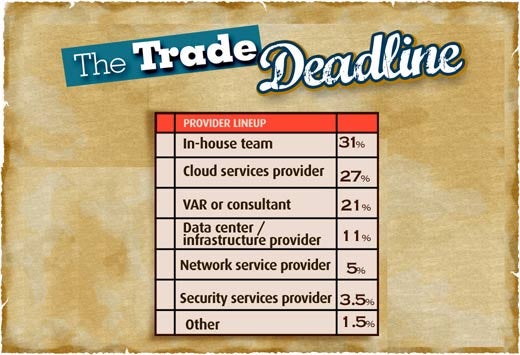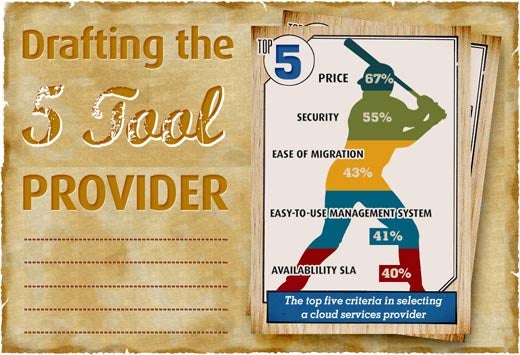Evolve IP surveyed 1,181 executive cloud decision makers and IT professionals on their perception of the cloud and adoption of cloud services. The results? There’s a near 100 percent chance of clouds – but not everyone is equally enthused.
Click through for the top highlights, and for complete survey results, please visit Evolve IP at www.evolveip.net/cloud-survey.
Click through for findings from a cloud adoption survey focused on mid-market businesses, conducted by Evolve IP.
Nearly nine out of 10 of the individuals surveyed (87 percent) believe that cloud computing is the future model of IT for mid-market organizations.
Seventy percent of executives and IT directors believe in the value of the cloud, while 53 percent of IT managers expressed the same opinion. Why the difference? IT managers don’t value lower total cost of ownership and the switch from CAPEX to OPEX as much as the executive team. IT managers are also slightly more concerned with reliability and performance.
In baseball terms, 2.5 is slightly better than Cy Young’s Hall of Fame ERA (2.67). It also represents the average number of services businesses have in the cloud. Among “cloud believers,” the number of services in the cloud jumps to 3.1.
Seventy-two percent of respondents will put new or additional services on the cloud in the next three years, with servers/data centers leading the way. Interestingly, even among those “unconvinced” or “needing more information” about the cloud, over 50 percent expect to migrate some services to the cloud by the end of 2016.
Disaster avoidance/business continuity (DA/BC) is the number one expected benefit of moving to the cloud, cited by 72 percent of all respondents. Of those with services already in the cloud, six in 10 had already experienced DA/BC benefits.
Other top benefits experienced by those in the cloud include: flexibility (70 percent), scalability (70 percent), lower TCO (57 percent) and deferring/avoiding hardware purchases (52 percent).
The top three concerns for implementing cloud services are related to and based around data concerns. They are: security (55 percent), legal/compliance (38.5 percent) and privacy (37 percent). Only one in three respondents were concerned about performance and reliability.
Cap space isn’t a concern for cloud services, with only one in four respondents citing budget as an issue in implementing the cloud. In fact, 61.5 percent say their budget for cloud services will increase in 2014. Of those that had an increase in 2013, a whopping 82 percent expect another increase next year.
While 54 percent of those surveyed feel their in-house team can implement a cloud strategy on their own, just 31 percent will stick with their current lineup to do so; 27 percent will trade up for a dedicated cloud services provider and 21 percent will work with a VAR or consultant.
For those companies looking at using a cloud services provider (CSP), price of services was the number one criteria for selection – noted by 67 percent of all respondents. Other critical stats include: security (55 percent), ease of migration (43 percent), easy to use management system (41 percent) and availability of an SLA (40 percent).


